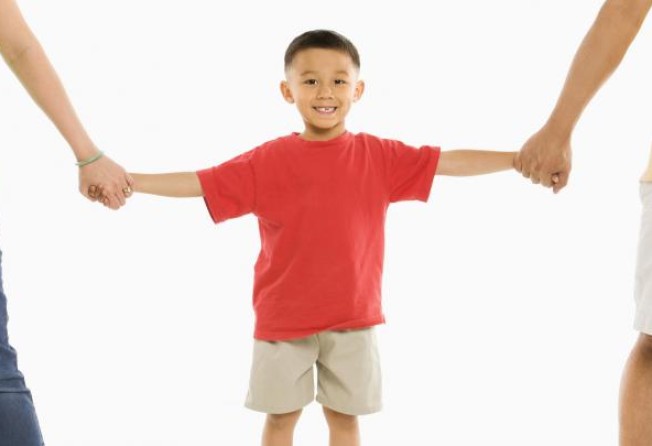Relationships: routines after separation

My husband and I separated about four months ago. We have two boys (six and three years old) who live full time with me. At the moment, their father is only having them every Friday night and Saturday when our helper is available to assist him, as he found it difficult to look after both on his own. When they are due to see him, they often cry and say they don't want to go and I feel bad about forcing them to. What should I do?
Understandably, it is heart-wrenching to watch and hear your children saying they don't want to leave the house for an overnight visit and you have to make them go.
Young children don't like change, especially at times of uncertainty and major upheaval in their lives - they want and need all the routines for them to feel safe.
Some of their worries about going to another parent's house, which I often hear, are: "If my parents could stop loving each other, then maybe she/he would stop loving me when I am gone and who will look after me then?"
"If I leave mum's house, when I come back, would she still be here?"
"My mum/dad has been crying a lot, would she/he be okay while I am gone?"
It is difficult to keep in mind, or to decide, what is in the children's best interest during the heat of a separation.
Visitation schedules (particularly for very young children) are an issue to be decided by adults, for which both parents must take full responsibility to ensure that the children maintain contact with both of them as much as possible. They also need to take into consideration the child's routine and needs (hours of sleep, nap time and medical history) and, most importantly, ensure there is the time and space to just let kids be kids. As parents, we should acknowledge that kids need both parents in order to thrive; they want and deserve love and attention from each. This is the parents' job, to make the visitation as smooth as possible for the children, just like we prepare them for preschool, primary school and all the other challenges they will face later in life.
Unless there is a concern that the father may be harming the children, you should aim to help the children to feel safe and show them openly that they have your permission to enjoy their time with him. I often ask both parents to display a calendar in their homes, so that children can see when they will be spending time with each one.
A calendar is a very reassuring visual aid for young children and can help to ease stress and anxiety. The fear of abandonment is very real to children whose parents have divorced. We have to remember that they have just witnessed a parent leave the family home.
Furthermore, children often feel they should be loyal to only one parent. It is important to make it clear to them explicitly that you love them even though you and their father are no longer together.
It is also important to let them know that you want them to have a good relationship with their father, to love him and enjoy the time they spend with him. Children need to know from both parents that they don't need to hide their love, nor take sides or feel bad for leaving one behind in order to spend time with the other.
In addition, you could help the transition by letting the children bring a few of their favourite toys or books, so that they feel more secure.
It is very good that the helper (someone I assume they have an established relationship with) will be there when they are with their father. This will allow the children to have some sense of normality while they are at his home. If your children could see their father during the week for bedtime or dinner, it would shorten the separation.
You want your children to have two homes, and not have to run between two households and have no place that they can call home.
Lora Lee is a child therapist and parenting counsellor with a background in developmental psychology, play therapy and post-separation counselling